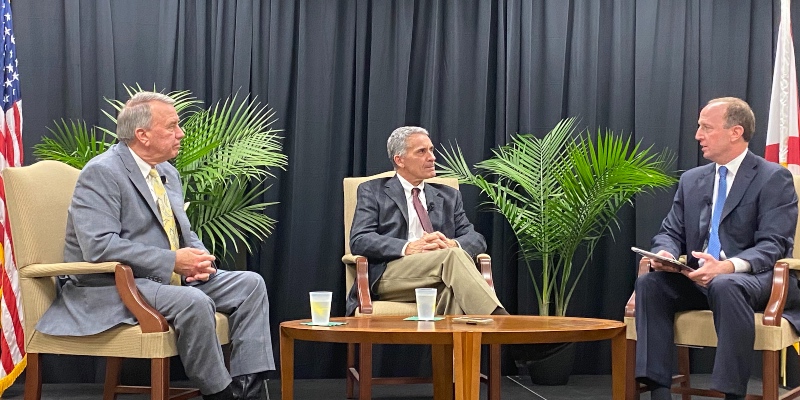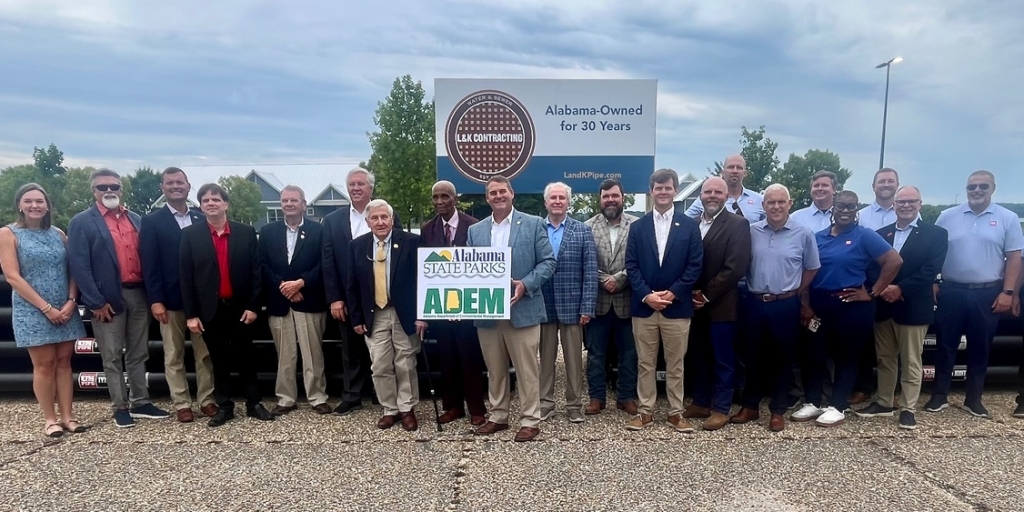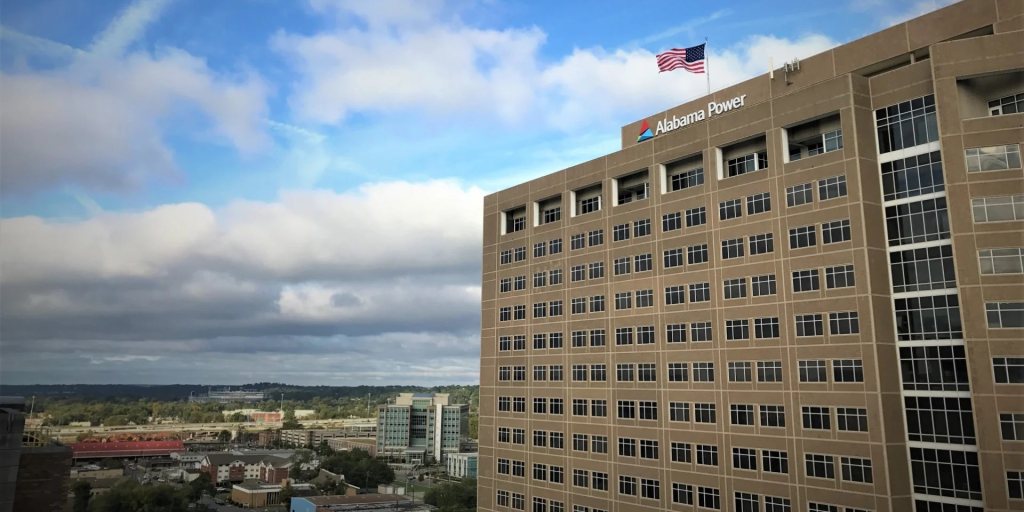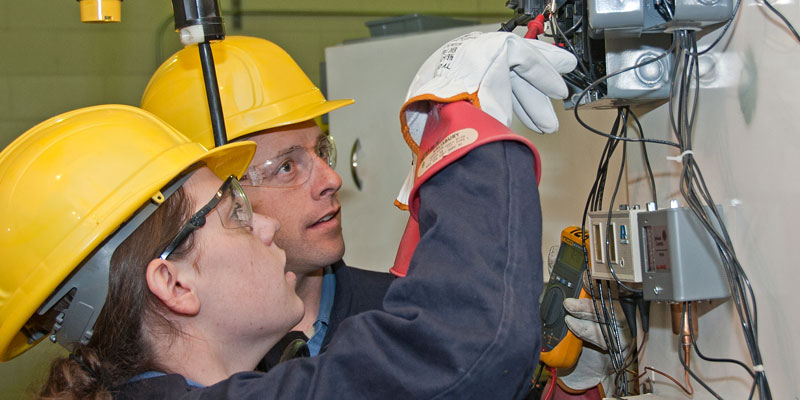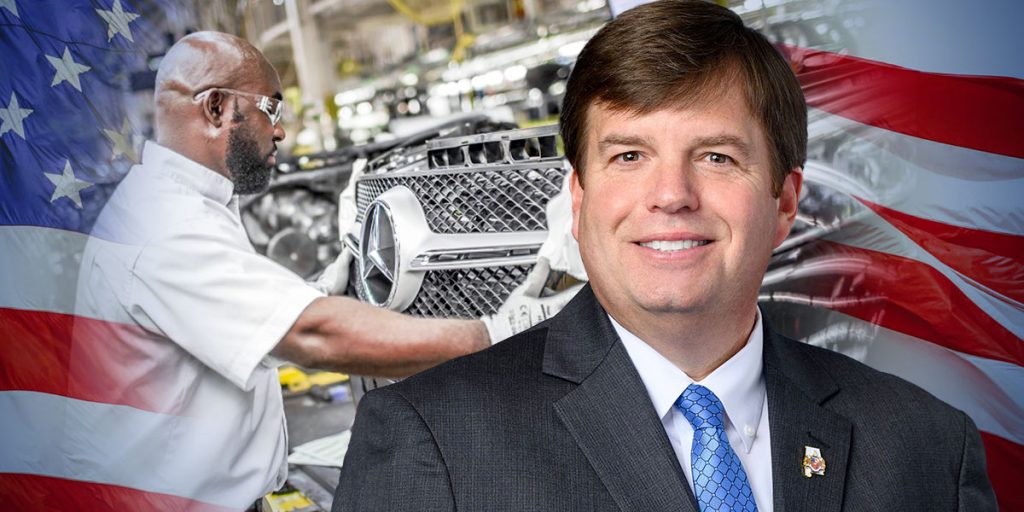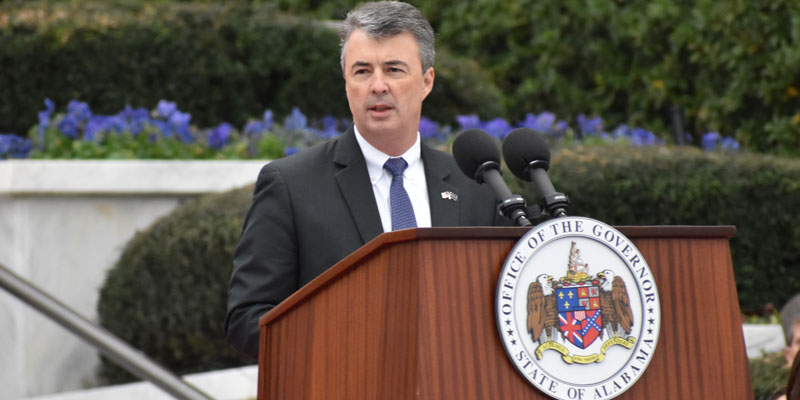MONTGOMERY — Yellowhammer News on Wednesday evening held the first Yellowhammer Connection event of 2020.
The event featured a live interview with Alabama Senate President Pro Tem Del Marsh (R-Anniston) and Speaker of the House Mac McCutcheon (R-Monrovia), who gave an overview of the legislative session so far and previewed what is still to come. Yellowhammer Multimedia owner Tim Howe moderated the comprehensive, in-depth discussion.
The gathering at the Alabama Association of Realtors also attracted some of the state’s top policymakers, including Senate Majority Leader Greg Reed (R-Jasper) and House Majority Leader Nathaniel Ledbetter (R-Rainsville).
The contents of the interview with Marsh and McCutcheon will be rolled out in multiple segments. In this article, the first part of the series, we take a look at infrastructure in Alabama.
Howe introduced the subject by mentioning two important project announcements made recently.
First, the U.S. Army Corps of Engineers last week announced the allocation of $274,300,000 in federal funds to initiate and complete construction of the deepening and widening of the navigation channel at the Port of Mobile. The federal funding was made possible by the historic leadership of U.S. Senator Richard Shelby (R-AL), the powerful chairman of the Senate Appropriations Committee. However, this was not the only critical component of the project funding; the state match was secured last year through the enactment of the Rebuild Alabama Act.
The second project mentioned by Howe was actually announced earlier in the day Wednesday. He referenced Brookwood’s Warrior Met Coal announcing a landmark $550-$600 million investment to open a new world-class longwall mine on the Blue Creek reserves in West Alabama. The met coal industry in Alabama is the Port of Mobile’s biggest customer, and Howe mentioned how the Port project — and thus Rebuild Alabama — has paved the way for the met coal industry and others to expand their operations and grow more jobs.
“The infrastructure bill in general was a big plus for the state of Alabama,” Marsh outlined. “The House and Senate looked at all aspects of infrastructure, and in that conversation, of course, the Port came up. And we knew that if we could deepen the harbor, we could double the amount of freight coming through there. When you double the amount of goods coming in, well, they’ve got to go somewhere. They’re going to be on your roads on trucks — or rail. And it’s going to also provide opportunity to industries and businesses in the state in many cases to ship at cheaper rates because of volume.”
He continued, “There’s no doubt the harbor depth increase was critical; it was, from day one, something we wanted to do. And I can’t even begin to tell you — we don’t know all the areas it will create improvement. But it will create opportunity and improvement in the state.”
The EV future, Alabama head of the curve
McCutcheon soon thereafter discussed the electric vehicle aspect of the Rebuild Alabama Act. The legislation charges hybrid and plugin electric vehicle drivers an annual fee so that they pay their fair share to use the state’s roadways. However, a portion of those annual fees also goes towards a grant program to build electric vehicle charging stations throughout the state.
“One of the positive things that came out of the infrastructure bill, the Rebuild Alabama Act, was the fact that we addressed the electric vehicles,” McCutcheon advised. “We even had discussions about autonomous vehicles … and of course the basis for the discussion was the fact that these vehicles are going to be traveling on our roadways, and they’ll be putting wear and tear on the roads. And therefore they need to have been contributing to the expense.”
“But it was during those discussions that we were able to gain a lot of knowledge and build up relationships with the manufacturers of these types of vehicles so that we could talk about things for the future and the fact that we recognize them — they came to the table,” the speaker added. “And it was more than just talking about dollars being contributed for the use of our roadways. It was an ongoing dialogue about how could they contribute versus the future.”
He again stressed the importance of bringing “the people with the technology” (electric vehicle manufacturers) to the table during the Rebuild Alabama process.
“[A]nd they recognized that Alabama was concerned about their industry and we wanted to keep them involved in what we were doing,” McCutcheon explained. “And that was one of the positive things that happened.”
Marsh also underlined the importance of the electric vehicle portion of the legislation.
He further spoke about electric vehicles potentially being built in Alabama in the near future.
“I absolutely [could see electric vehicles being manufactured in the state soon],” Marsh remarked. “I quite honestly believe that the rate at which electric vehicles will hit the roads will be faster than people expect.”
“And I say that because the battery technology is advancing at a quicker rate,” he continued. “And that’s the key. When you can get a battery that’s charged in 30 minutes or less and you get a range of 500-600 miles, that’s when it takes off. I’m convinced that that’s coming.”
Marsh projected that all automobile manufacturers will ultimately have to get in the business of selling some electric vehicles or “they’re going to be in trouble.”
“So, yeah, I think that everybody (all automobile manufacturers) in the state will have a play in that game, and I think that it’ll be quicker than you expect,” he concluded.
McCutcheon wrapped up his remarks on the subject by noting that the electric vehicle aspect was just part of the “forward-thinking” Rebuild Alabama Act.
“When you look at the Port, and you look at the fees for electric vehicles, when you look at the growth mechanism that was put in that bill, as well as addressing the revenue — just the revenue that was needed from the actual revenue coming from the gas pump — this was probably one of the most forward-thinking bills that the legislature has addressed in several years,” McCutcheon emphasized.
He summarized further, “We didn’t just put a bandaid on a problem to fix it for a little bit. We looked to the future.”
Sean Ross is the editor of Yellowhammer News. You can follow him on Twitter @sean_yhn




